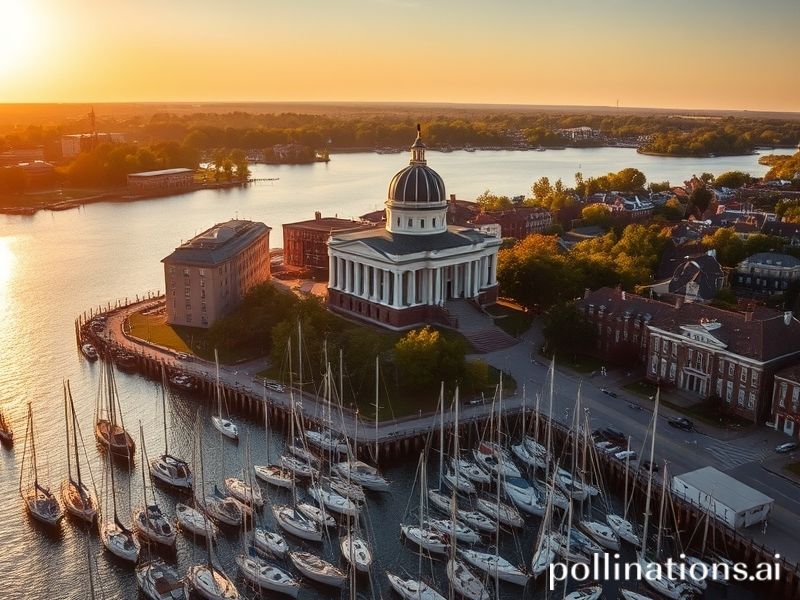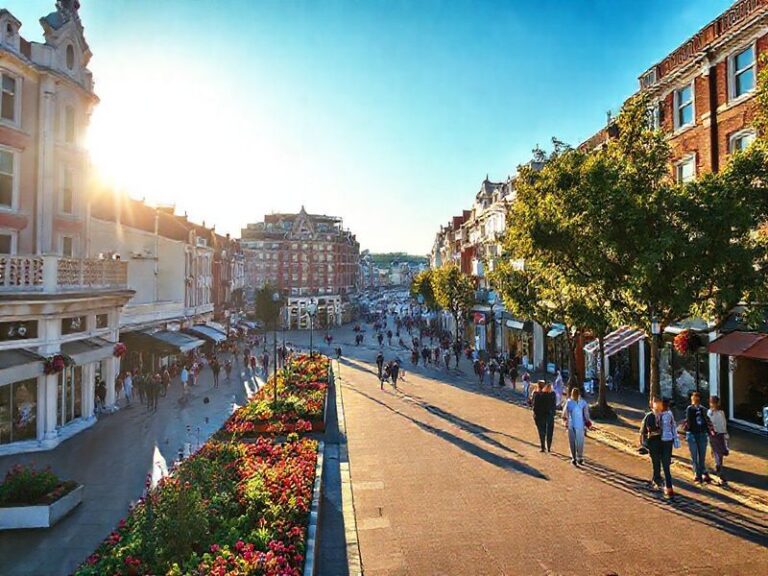Annapolis: The Quaint American Town Quietly Steering the World’s Navies (and Sinking Under Its Own Irony)
Annapolis, Maryland – a postcard-perfect colonial port where the U.S. Naval Academy trains future admirals and the state legislature still meets in the only American capitol building older than the country itself. From half a world away, the place looks like a set piece from a Disney+ series about enlightened republics. Yet walk the narrow brick streets on any given Tuesday and you’ll catch the same universal perfume of fried food, diesel, and existential dread that drifts over Marseille, Mumbai, or Mombasa. Globalization, after all, has no respect for cute heritage signage.
Let us zoom out. Annapolis is not merely America’s sailing capital; it is a geopolitical petri dish. Every May, the city hosts the Annapolis Conference – not to be confused with the Annapolis Accords, the Annapolis Cup, or the Annapolis Crab Festival, each of which could plausibly end in tears and property damage. Delegates from NATO, the African Union, ASEAN, and any acronym currently fashionable arrive to sip local chardonnay and politely ignore the fact that the host nation’s Congress can’t consistently fund its own navy. The irony is served chilled, like the oysters: the world’s maritime rules are drafted in a town whose biggest daily traffic jam is kayaks.
Meanwhile, midshipmen in starched whites march past fudge shops advertising “Freedom Flavor.” They study cyber warfare in classrooms built when sails were high tech, preparing to defend GPS constellations that also guide Somali pirate skiffs and Mediterranean smugglers. Somewhere in the syllabus is the lesson that every empire eventually gets its own museum, usually with a gift shop. Annapolis already has the museum; the gift shop sells “Don’t Give Up the Ship” shot glasses made in China.
Climate change, never invited, has RSVP’d anyway. The city’s sea level is rising faster than the midshipmen’s tuition, and the historic dock floods on full-moon nights like Poseidon practicing small-craft warnings. Dutch engineers have been flown in to advise; their PowerPoint titled “We’ve Been Below Sea Level Since 1648” gets polite applause and polite panic. Insurance underwriters in London, Zurich, and Singapore now treat Annapolis as a case study in how to price the slow-motion sinking of prestige real estate. If you buy a waterfront house here, the mortgage comes with a snorkel.
Yet for all its parochial quirks, Annapolis matters precisely because it embodies the contradictions every capital now juggles. It is at once a shrine to Enlightenment ideals and a bedroom community for Beltway lobbyists. It exports naval officers who will police Hormuz, Malacca, and the South China Sea while importing iPhones assembled by workers who will never see the ocean. The city’s carbon footprint may be small, but its strategic shadow is long – a reminder that the pax Americana, like Chesapeake blue crabs, is delicious, overfished, and subject to sudden shell shortages.
The annual commissioning week offers a masterclass in controlled pageantry. Parents fly in from Seoul, Lagos, and Omaha to watch their offspring fling hats into an air already thick with drone surveillance. Local bartenders invent cocktails like the “F-35 Failure-to-Launch,” garnished with a paper umbrella printed in Cyrillic. Foreign journalists scribble notes on how neatly patriotism can be packaged for export. By midnight, the same midshipmen who quoted Thucydides at breakfast are belting karaoke versions of “Wagon Wheel” – proof that soft power is mostly soft serve.
So, when the next headline screams about a naval standoff in the Taiwan Strait or a treaty signed in Vienna, remember Annapolis: the quiet, quaint pressure point where imperial nostalgia meets imperial overstretch. The city’s oldest tavern claims George Washington once slept there, probably after an equally awkward summit. Two and a half centuries later, the beer is colder but the geopolitical hangover is identical. Cheers to continuity – and to the bill, which, like sea level, only goes up.







